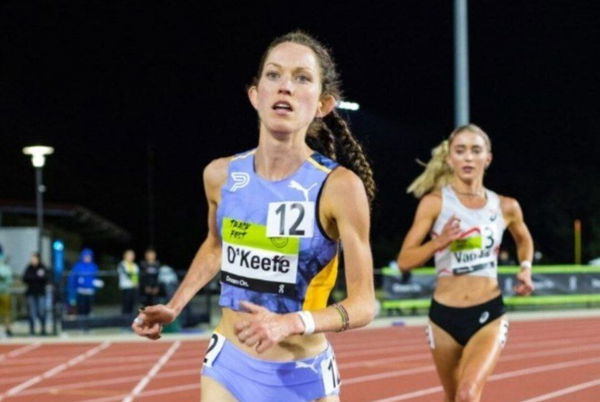

Fiona O’Keeffe, the epitome of marathon excellence, prepares to make her mark on France’s historic marathon route. With determination and skill, she aims to surpass records set during the 1984 Los Angeles Games, where the first women’s Olympic marathon took place. For the first time in its extensive history, the forthcoming Paris 2024 Olympics will achieve numerical gender parity among athletes.
An Olympic speed climber ‘Piper Kelly’ made a bold statement, “Whatever they want to be, it’s not a boy’s world anymore”. This landmark accomplishment, with 5,250 male and female athletes each, signifies a noteworthy advancement toward gender equality in the realm of sports.
Fiona O’Keeffe: A trailblazer for women at the Olympics
ADVERTISEMENT
Article continues below this ad
The Olympics have seen a notable increase in female participation in traditionally male-dominated sports. O’Keeffe said on Wesh.com, “That’s still fairly recent”, But now, no one is questioning if it’s safe for women to run marathons. It’s like, yeah, women can do this. It makes sense.” Starting in 1900 in Paris, women’s inclusion progressed slowly until 1996 when the IOC officially promoted gender equality.

On this Danette Leighton Women’s Sports Foundation CEO said, “It’s only helped to elevate the opportunity when you can be a part of Team USA or part of another global roster”. The Beijing Winter Olympics also saw 45% female athlete participation, paving the way for Paris 2024 to achieve complete numerical gender parity.
Since women competed in the modern Olympics for the first time at the Paris Games in 1900, efforts have been taken to guarantee that female athletes are given more respect and inclusion. Notably, a path towards gender equality in sports was started by Charlotte Cooper’s triumph in a single women’s event.
ADVERTISEMENT
Article continues below this ad
Paris remains a symbol of humanity’s development which is represented by the Olympic Logo that is a personification of three major human virtues – liberty, equality, and fraternity. The marathon route itself pays homage to pivotal moments in women’s history, passing through Versailles, a tribute to the movement demanding recognition for women during the French Revolution.
Fiona O’Keeffe’s historic marathon quest in Paris Olympics 2024
American marathon runner Fiona O’Keeffe will traverse this historic route, echoing the strides made since the first women’s Olympic marathon in the 1984 Los Angeles Games. Despite the progress, challenges persist, and organizations like the Women’s Sports Foundation and the International Olympic Committee are committed to furthering gender equality in sports.
ADVERTISEMENT
Article continues below this ad
Among the measures IOC took are the establishment of new women’s sport categories and encouraging each country sending one male and one female athlete to lead the nation flag which they will hold in the Opening Ceremony to illustrate gender equality. Paris Olympics 2024 will be a symbol of persistence that is meant for the positive representation and fair opportunities for both male and female athletes. On international platform it will be an ultimate reflection of the fact that sport does not recognize gender but promotes inclusion and cohesion.

